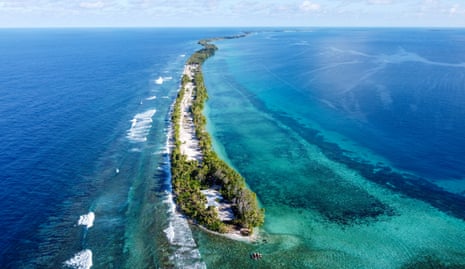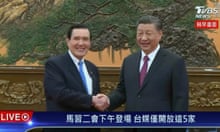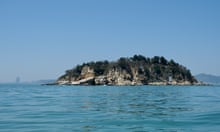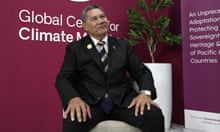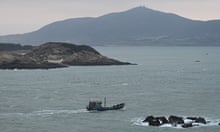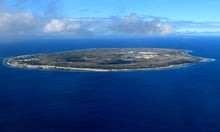On Friday, the small Pacific island nation of Tuvalu will head to the polls to elect members of its 16-seat parliament.
With the country’s population sitting at just over 11,000, Tuvalu’s elections rarely spark international headlines. But, against a backdrop of intense geopolitical competition and China’s rising influence in the region, greater scrutiny surrounds this year’s vote – and its outcome may have implications far beyond Tuvalu’s shores.
What is happening?
Candidates in Tuvalu are battling for one of the two seats in each of Tuvalu’s eight island electorates. Many islands have fewer than 1,500 eligible voters, and often only a handful of votes separates the winners and losers in each electorate.
There are no political parties in Tuvalu, and candidates are all running as independents. Once counting is over – which is expected some hours after polls close on Friday – a period of complex negotiations will begin, where the 16 newly elected parliamentary members develop factions. The largest group will form a government and elect the prime minister.
As a result, even if the current prime minister, Kausea Natano, successfully defends his seat of Funafuti, he may not be re-elected as the nation’s leader. In fact, Natano’s finance minister, Seve Paeniu, is aiming for the prime ministership himself, and has already secured a seat in parliament by running unopposed in his electorate of Nukulaelae. He says he has begun talks with other candidates in an attempt to seal his leadership.
Opposition leader Enele Sopoaga is also vying for another term as Tuvalu’s prime minister, having lost his prime ministership to Natano in the previous 2019 election.
What could the outcome mean for China and Taiwan?
Tuvalu is one of only 12 countries in the world that maintains diplomatic relations with Taiwan. The nearby Pacific nation of Nauru switched its allegiance from Taiwan to China earlier this month, just days after presidential elections in Taiwan.
There is speculation that Tuvalu may do the same following its elections on Friday, though Taiwan’s foreign ministry official Eric Chen condemned such rumours. “The Tuvalu government once again emphasised that it will firm up diplomatic ties with us,” said Chen at a recent press briefing.
Under Natano’s administration, Tuvalu has maintained strong ties with Taiwan, with the Prime Minister visiting Taipei in 2022 as part of an official delegation. Natano reaffirmed his support of Taiwan in November during the Pacific Islands Forum, revealing his government had been approached by Beijing to form a diplomatic union, but this was rejected since China “didn’t allow us to have two diplomatic ties with Taiwan and them”.
Sopoaga, who has served as Tuvalu’s ambassador to Taiwan, told the Guardian he “strongly believe[s] Tuvalu should continue to recognise Taiwan as a sovereign independent state and a diplomatic friend”.
However, Paeniu said if he were to become prime minister, he would “review” the country’s relationship with Taiwan and China, to ensure Tuvalu’s foreign policy was the most beneficial to the country.
“Even within our government that has led Tuvalu for the past four years, we also have different and differing opinions on certain topics, including the Taiwan-China issue,” he told the Guardian. “So I take the view that this is something that is open for review.”
Mihai Sora, a research fellow from the Pacific Islands programme at the Lowy Institute, an Australian thinktank, said that since 2016 there had been a global acceleration of countries forfeiting their support of Taiwan in favour of China, and elections often marked an “inflection point” for new governments to make “major changes in foreign policy”.
“The Taiwanese government would be quite concerned that this [election] might bring about another potential change, and it might result in the loss of another diplomatic partner, which is an ever-dwindling number for Taiwan, around the world,” Sora said.
Results from Tuvalu’s election are expected on Friday night, with a government expected to be formed in the days that follow.
What could the election mean for Australia’s treaty with Tuvalu?
Foreign policy is expected to play a large part in the leadership bids of the candidates, and a migration and security treaty signed between Tuvalu and Australia in November is weighing heavily on the vote.
The deal is yet to be ratified by either country, and has led to heated debate in Tuvalu’s parliament. Opposition leader Sopoaga says he would scrap the deal if elected as prime minister.
“The arrangement is one-sided, it’s all to do with what Tuvalu must commit [to], but Australia is not committing [to] anything at all,” Sopoaga told the Guardian.
Meanwhile, Paeniu – who was instrumental in negotiating the agreement with Australia – says he would continue to support the treaty and ensure it comes into force if elected as prime minister. However, he said he would make “slight modifications” to a controversial element of the agreement that states Tuvalu must “mutually agree with Australia” if it wants to strike a deal with any other country on security or defence-related matters.
“That’s something that would need to be negotiated with Australia,” Paeniu said.
Sora describes the situation as a potential “stress point” for Australia. “It’s a tense moment for Australian diplomacy in some respects,” Sora said. “I would expect that that agreement will come under scrutiny in any new government.”
